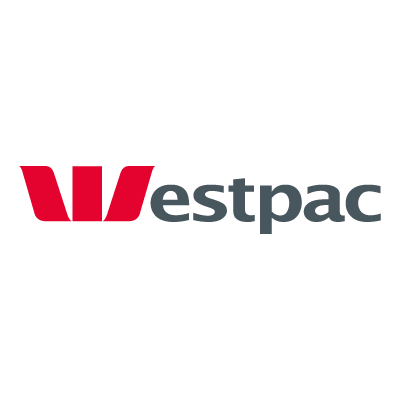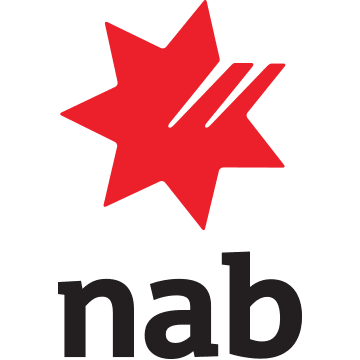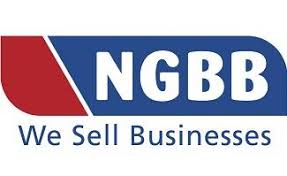Home Loan Finance
At Southshore Finance, we pride ourselves on offering highly personalised home loan finance solutions that are tailored to suit your unique needs and circumstances – not the lenders!
Whether you’re looking to finance the family home or your next investment property, we can help you secure the best possible home loan package with the most favourable terms and rates.
Our experienced team of finance brokers and financial experts offer a range of home loan finance services, including residential development and construction funding, loan restructuring, and more.
Need help with your home loan?
What is Home Loan Finance?
Home loan financing encompasses the entire financial journey of purchasing a property, including borrowing money from a financial institution, and determining the repayment structure, including interest, over a fixed period.
Whether you’re a first home buyer or a property investor, it’s important that you research and compare home loan options to find the best deal for your specific needs and budget.
Choosing a Home Loan
There are several factors to consider when deciding on a home loan. Here are some key points you’ll want to keep in mind:
1. Types of Home Loans
There are various types of home loans available for Australian homeowners. The most common ones you’ll hear about are fixed rate, variable rate, and interest only.
Each type of loan has its own pros and cons, so it’s important to understand them before making your decision.
2. Interest Rates
Interest rates can vary widely among lenders, so it’s essential to shop around and compare rates. As an accredited broker, we have access to sophisticated software that can be used to quickly determine the best rates on offer for your circumstances. Be aware that interest rates can also fluctuate over time, especially for variable-rate loans.
3. Loan Features
Some loans come with additional features, such as offset accounts, redraw facilities, and the ability to make extra repayments. These features can help you save money on interest and pay off your loan faster.
Southshore Finance’s wealth of experience, combined with our reputation in the finance industry, ensures that we can negotiate the very best terms, conditions, and rates on behalf of Australian homebuyers. Contact us today for help with your home loan finance.
Qualifying for a Home Loan
There are several factors that lenders will take into consideration when you’re applying for a home loan:
1. Income
You need to have a steady income to qualify for a home loan in Australia. Lenders will assess your income to determine your ability to repay the loan. You may need to provide payslips, tax returns, or bank statements to prove your income.
2. Employment
Lenders will want to see that you have a stable employment history. If you’re self-employed, you may need to provide additional documentation to prove your income and business stability.
3. Credit History
Your credit history is a crucial factor in determining your eligibility for a home loan. Lenders will look at your credit score and credit history to assess your risk as a borrower. A good credit score and a clean credit history will improve your chances of getting approved for a loan.
4. Savings and Deposit
Although not all Australian lenders will require a 20% deposit, aiming for this figure is still a good idea to avoid paying Lender’s Mortgage Insurance (LMI). Saving for a deposit before purchasing a property can also save you from paying significant interest in the long run and may prevent your mortgage payments from becoming unaffordable in case of interest rate hikes.
Another way to avoid LMI is through parental or family guarantees, where a family member provides their property as security for a portion of your loan. It’s important to note that if you default on the loan, the family member will become liable for the outstanding amount. If you are considering this option, having an open discussion with your family member beforehand is crucial to ensure that all parties involved understand the associated risks.
5. Existing Debts
Lenders will consider any existing debts you have, such as credit card balances, personal loans, or car loans. These debts may impact your eligibility for a loan.
Each lender has its own eligibility criteria that you need to meet to qualify for a loan.
We can assist you understand the lender’s requirements before applying for home loan finance.
Home Loan Application Process
The home loan application process for Australian residents can be an extensive and complicated process. It involves several steps, and depending on your individual circumstances, there may be additional steps involved:
1. Getting Pre-approval
Pre-approval can be a good starting point for your home loan journey, this involves providing information about your income, expenses, and assets. This allows us to assess your borrowing capacity and determine how much a lender would be willing to lend you.
2. Formal Application
Once you have pre-approval, you can start searching for a property that meets your needs and budget. When you find a suitable property, you can then make a formal application for a home loan. This involves providing detailed information about your financial situation, including proof of income, expenses, assets, and liabilities, as well as information about the property you are buying, such as its value and location.
3. Property Valuation and Loan Offer
The lender will then usually arrange a valuation of the property to determine its current market value. This is to ensure that the property is worth the amount you are borrowing. If your application is approved, the lender will issue a loan offer outlining the terms and conditions of the loan, including the interest rate, repayment amount, and any fees and charges.
4. Settlement
Finally, once you have accepted the loan offer, the lender will arrange settlement with the Buyers and the sellers Settlement Agents. This involves transferring the funds to the sellers’ Settlement Agent, arranging the transfer of land into your name, and registering the new mortgage on the property title.
If you’re an Australian resident considering buying a home and are overwhelmed by the home loan application process, Southshore Finance is here to help. Our experienced finance brokers can guide you through the process, from getting pre-approval to settlement. Contact us today to schedule a consultation and get started on your home-buying journey.
Our Partners & Lenders
Homepage Carousel 2
FREE No-Obligation Consultations with Home Loan Finance Experts
Are you an Australian resident looking to buy a home?
Southshore Finance offers FREE no-obligation consultations to help you navigate the home loan market with ease.
Our team of experienced finance brokers is dedicated to helping you secure the best loan for your individual circumstances. We will guide you through the application process, provide invaluable insights into the features of each home loan option, and help you negotiate the very best terms, conditions, and rates on your behalf.
Don’t let financial jargon or complicated processes hold you back – contact Southshore Finance today and let us help you turn your dream of owning a home into a reality!
Home Loan Finance FAQs
What is Lenders Mortgage Insurance (LMI)?
Lenders Mortgage Insurance (LMI) is a type of insurance that lenders may require you to take out if you are borrowing more than 80% of the value of the property. LMI protects the lender in case you are unable to make repayments on the loan and the property needs to be sold to recover their funds.
What is the difference between interest rate and comparison rate?
The interest rate is the rate at which you are charged interest on your home loan. The comparison rate, on the other hand, considers the interest rate as well as any other fees and charges associated with the loan, such as application fees, ongoing fees, and discharge fees. This helps you compare the true cost of different home loan products.
What is a redraw facility?
A redraw facility is a feature that allows you to withdraw any extra payments you have made on your home loan. This can be useful if you need access to extra funds for unexpected expenses or emergencies.
What is an offset account?
An offset account is a transaction account that is linked to your home loan. Any money you deposit into the offset account is offset against your home loan balance, which can help reduce the amount of interest you pay on your loan.
Will my student debt affect my home loan application?
Student debt is likely to have some impact on your borrowing power. Unlike other debts, student debt affects the income side of the equation, as it’s automatically deducted from your income once you reach a certain threshold. This means that, if you have a student loan, you might not be able to borrow as much as you initially thought.
Can I get a second home loan if I still have a mortgage?
Although a home loan is a significant debt, having an existing mortgage may not necessarily work against you. In fact, if you’ve lived in your home for some time, you may be able to tap into your equity to produce a larger deposit for your second property. Any income from investment properties could also increase your borrowing capacity and help your loan application.
Can I pay off my home loan early?
Yes, you can usually pay off your home loan early without incurring any penalties. This can help you save on interest and pay off your loan faster. However, some lenders may charge early repayment fees, so it’s important to check the terms and conditions of your loan.
What happens if I miss a home loan repayment?
If you miss a home loan repayment, the lender will usually charge you a late payment fee and they may record a missed payment on your credit file, which will affect your credit score. . If you continue to miss repayments, this could result in the lender taking legal action to recover their funds, which could result in the property being sold to pay off the loan. The most important thing to remember is communication. If you know that you are not going to be able to meet the repayment, reach out to the lender in advance and let them know. Lenders will respect that you are being proactive and will negotiate a repayment adjustment. In the event of hardship, lenders are required to work with you to find a solution. At all times we are available to assist you to navigate through this process.
What happens if my home loan application gets rejected?
If your home loan application is rejected, it can have a negative impact on your credit score. Each time you apply for a home loan, it creates a hard inquiry on your credit file, which remains even if your application is denied. While one denied application may not drastically lower your credit score, applying with multiple lenders in a short period of time can have a bigger impact.
Many inquiries on your credit file may suggest to potential lenders that you are a risky borrower, which can make it harder to get approved for future loans. Therefore, it’s important to only apply with a lender that is likely to approve your application.
If you have been rejected for a home loan, it may be beneficial to seek the help of a mortgage or finance broker.
Our experienced finance brokers can assess your situation and match you with a lender that is more likely to approve your application. We have access to a wide range of Australian lenders and loan products, so we can help you find the best deal for your needs.
Got More Questions?
Contact Southshore Finance for a FREE consultation with one of our experienced home loan finance experts.
Get in touch.
Phone: 08 9474 1999
Fax: 08 9474 1542
Contact Us
Follow us here.
Subscribe for occasional financial news and tips.


















